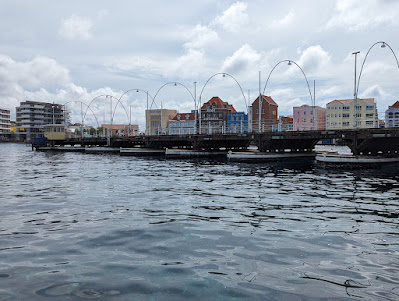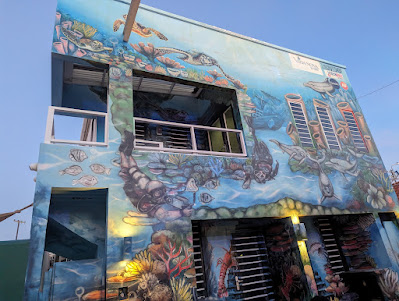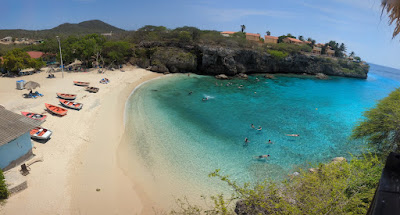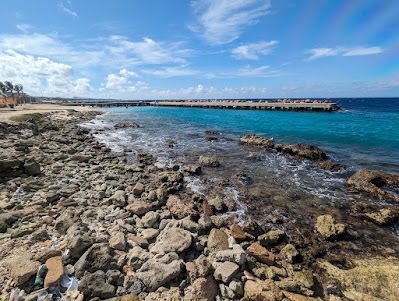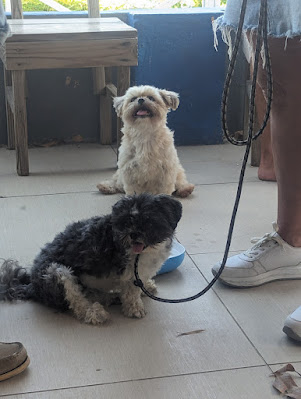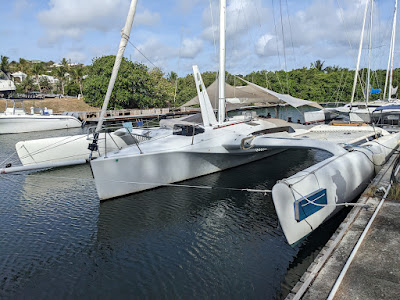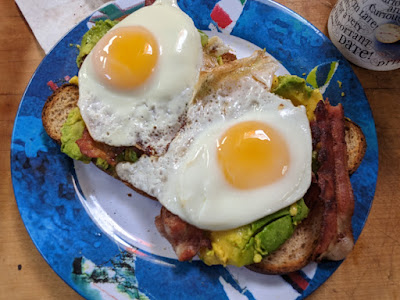We sailed out of Curacao under a stiff wind, almost exactly on the nose. Somehow, impossibly, just like we came in.
The first night we lost track of our boat buddy Bliss in a squall. Sometime later in the night we noticed the mainsail was shaped weirdly because the foot of the sail was working its way out of the boom track, before we had a chance to fix it the outhaul shredded and snapped loose. The big winds and steep waves made it just too much to attempt to solve any of it safely in the dark and so we decided the best course of action was to take down and secure the mainsail until we could get some sunshine on it and make a plan. The beauty of a ketch is that in high winds she often performs better with just the headsail and mizzen sail, ketch sailors call this "running jib & jigger" and Minerva is quite comfortable this way. I clipped to the jacklines, crab-walked/crawled out to the mainmast, pulled the sail down and secured it while Lance watched from the wheel, calling out warnings for the bigger waves so I could pause long enough to cling to the mast or boom until it was safe to take one hand off again and resume sail wrestling. Sail secured, I crawled back to the safety of the cockpit, unclipped and passed out until time for my watch. The morning light revealed a half dozen problems with the mainsail and boom, all of which would have to wait for a calm day at anchor before being addressed.
On the third day the wind shifted a bit behind us, we flattened out the boat and flew into Christiansted like a rocket, our Curacao flag still flying because it seemed too unimportant to hassle with in the rough conditions, short-handed as we were with the manual steering. It was somewhat shredded from the season and the long ride in. We didn't take it down until Minerva was resting on her anchor alongside our buddy boat. Our American flag at the stern was every bit as shredded.
There were already a couple of other sailboats anchored with Bliss. One of them was a beautiful charter boat named Kai. Shortly after we had settled the bureaucracy, removed our tattered Curacao flag and hoisted the USVI flag, the crew of Kai came over and gifted us with some fish from their freezer. Rather than let it thaw while getting some work done they shared the bounty. This is the cruiser way.

The happiest view - finding your long-lost buddy boat at your destination
They told us they had been scrabbling to figure out our Curacao flag, wondering what far away lands we had sailed in from, and how they were hoping we would anchor our "real sailboat" out by them so Kai and her crew could share the anchorage with the other "real sailors".
When they said those words I looked around and it took me a moment. "Oh... you mean us? Real sailors?
Our hair and skin is salty. Our mainsail is secured tightly, obviously done on the fly but done properly nonetheless (not to mention one-handed while often airborne). The dog is still wearing her life jacket and anxiously eyeing the frozen fish - she recognizes the way they zip-seal her favorite meats in the Caribbean. We are yawning but nonetheless going about our business settling Minerva after a long passage; tidying lines, securing sails, checking the chafe guards on the anchor bridle.
They're talking about us. I scratched my salty eyebrow and blinked the resulting salt from my eye. I suppose we are real sailors.
 |
| Goin' to shore for the first time after a long passage - this is the face of a very happy sailor dog |




